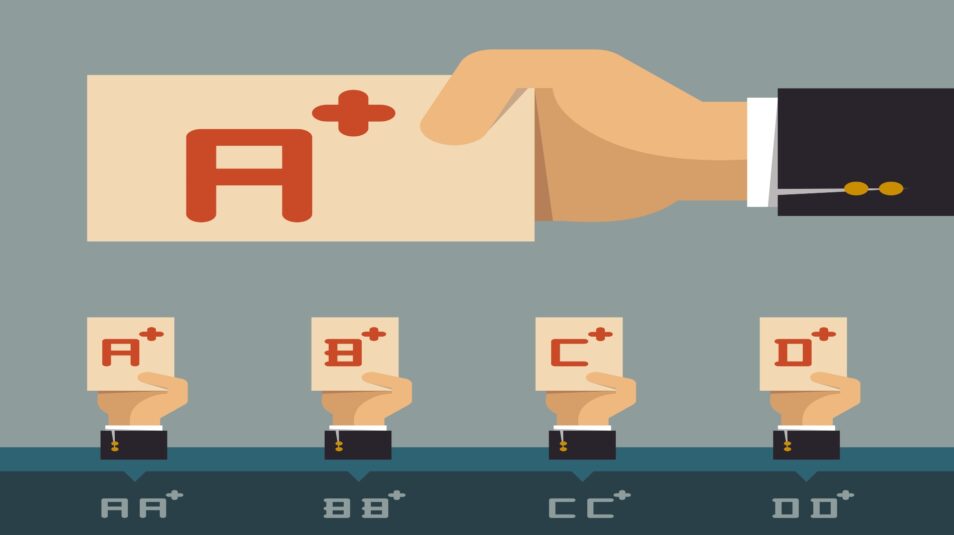Use the Right Scorecard

Leadership
April 9, 2021
Jane Perdue
Executive Director, The Jane Group
Topics
Character, healthy balance, scorecard, Self esteem, Self worth, self-assessment, self-awareness, Value, Values“Honey, you really need to start dusting every day. If the neighbors drop-in, they’ll think you’re a bad housekeeper.”
Mom had moved in about a month earlier, and this wasn’t the first time she’d commented on my inferior housekeeping skills.
Growing up, we lived in the cleanest and best-maintained home on the street. Mom’s daily chore list included dusting, vacuuming, and doing laundry. Once a week, she’d wash all the windows inside and out, disinfect the bathrooms, mow the lawn, hose and sweep out the garage, edge, trim and snatch off any dead or dying flowers. Nothing was dirty or out of place at our home. Ever. Mom took great pride in her reputation as an excellent housekeeper.
I never aspired to be a great housekeeper and didn’t see as not being one as any sign of weakness or being lacking. My goal was clean and tidy, not immaculate—a mindset Mom didn’t understand. She was horrified every time I told her if someone was interested in seeing the dirt around my home that I’d happily show them where to look. Someone’s assessment of my cleaning skills wasn’t a factor in how I measured my worth.
Warren Buffett, business tycoon and the chairperson and CEO of Berkshire Hathaway, says, “The big question about how people behave is whether they’ve got an inner scorecard or an outer scorecard. It helps if you can be satisfied with an inner scorecard.”
Our self-concept boils down to how we see ourselves and that self-picture is based on two primary factors:
- Self-esteem—the positivity or negativity of our evaluation of our self, our traits, and our features. Broadly speaking, do we give ourselves an “A,” a “F,” or somewhere in-between in how we evaluate ourselves.
- Social comparison—how we compare ourselves to others in terms of traits, skills, abilities, appearance, opinions, net worth, career, material goods, connections, and achievements.
“Self-esteem is what we think and feel and believe about ourselves. Self-worth is recognizing ‘I am greater than all of those things.’ It is a deep knowing that I am of value, that I am lovable, necessary to this life, and of incomprehensible worth.” ~Dr. Christina Hibbert, clinical psychologist, and author
In today’s in-your-face world of social media, culture wars, celebrity influencers, and shaming or canceling this-or-that, it’s easy to lose the deep knowing about ourselves and get swept up in comparing ourselves to others and measuring our self-worth by an outer scorecard.
When our self-assessment tilts too heavily toward being concerned with what others think, our sense of self-worth and value can get out of whack. We rely too much on the outer scorecard at the expense of the inner one. Thinking about both of them, inner and outer assessment, is what we want to do.
Maintaining a healthy balance between looking inside and outside as we determine our value requires self-awareness—and some effort, like training ourselves to:
- Focus on both our being and our doing. Don’t be mesmerized by impressive job titles or material possession and forget about character, fairness, trustworthiness, and compassion.
- Give ourselves and others unconditional positive regard.
- Remind ourselves that the size of our social media following, bank account, etc., has nothing to do with being worthy.
- Challenge, not blindly accept, the critical words of our inner critic.
- Accept that someone loving us isn’t the only thing that makes us worthy of love.
- Avoid linking our job with our personal values. A good person can be a janitor just as easily as a CEO.
- Accept that everyone has personal elements that are good, bad, and ugly. Perfection is a mirage.
- Remind ourselves that our real value comes mostly from the inside.
“It can be frustrating and even frightening to observe the success which sometimes comes to outlaws and rogues who seem to refute notions of universal justice. Every time we see a villain enjoying the fruits of dishonorable acts, we find ourselves doubting the value of character and the validity of the virtues we have been taught. Thus, it takes character to believe in character, but that belief is always rewarded, often by material success, but always by the esteem it earns from those who matter.” ~Michael Josephson, law professor and founder, Joseph and Edna Josephson Institute of Ethics






